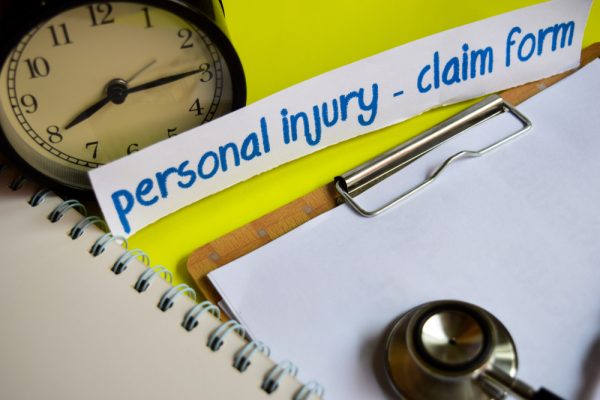Accidents, whether slip-and-falls or car crashes, are more common than you think. In fact, road crashes are one of the leading causes of death in the U.S. Every year, with more than 38,000 people dying in crashes on U.S. roadways. An additional 4.4 million are injured seriously enough to require medical attention.
An accident can leave you or your loved one with temporary or even permanent disability, significant medical bills, and property damages, and even result in loss of work. The best way to recover the cost of medical expenses lost wages, and property damage is to file a personal injury claim. You can file such a claim with the help of personal injury lawyers in Kona. However, you will first need to make sure you have a claim.
Here are a few things you need to know to understand whether or not you have a claim.
1. Hawaii Is No-Fault State
Hawaii is still one of the very few states in the US with a “no-fault” system. The system applies to car accidents and personal injury claims arising from them. In this system, there is no need to establish whose fault caused the accident. When you file the claim with your own insurer, you will get paid per the extent of your injuries.
As your insurer will have to pay for your and your passenger’s treatment, all vehicle owners in Hawaii need to carry minimum car insurance coverage during the vehicle’s registration period. Remember, your insurance company will pay only up to your Personal Injury Protection (PIP) limit.
However, as per this law, the at-fault driver is responsible for the property damage. So, you will have to sue the at-fault driver for the damages caused to your vehicle. Under Hawaii’s personal injury law, you can get compensation for special or economic damages and non-economic or general damages.
2. Stepping Outside No-Fault System
Usually, you can’t step outside the “no-fault” system in Hawaii. However, if your medical bills exceed $5,000, the law allows you to file a personal injury lawsuit (also called third-party car insurance claim) against the at-fault driver.
In this case, you will need to establish the following:
- The at-fault driver was responsible for the accident
- The accident lead to your present injuries
- The injuries caused you significant pain and suffering
You can also pursue a personal injury lawsuit if you have suffered grave injuries, such as loss of a body part, permanent disability, or severe disfigurement. Unlike in a no-fault claim, you can also ask for compensation for non-economic losses such as pain and suffering.
However, Hawaii also has a comparative negligence rule. As per this rule, if you were also responsible for the accident, you will get compensation according to the degree (percentage) of your fault. Given how complicated this system is, you should consult qualified personal injury lawyers in Kona to know exactly where you stand.
3. Other Types of Cases
Car crashes are just one of the most common types of personal injury cases. You can also file a claim in case of medical malpractice, slip and fall accidents, injury caused by faulty products, and even dog bites, among others. Depending on your type of personal injury lawsuit, different rules will come into play.
For example, Hawaii has a strict liability rule for dog bites or attack claims. In most states, dog owners get protection from personal injury lawsuits if their dog bit someone for the first time. It is called one bite rule. However, this exemption is not present in Hawaii’s dog bite rules. As per the law, the owner is strictly liable for the injuries caused by their dog.
4. Consider Damages Caps in Hawaii
Hawaii also has a few unique rules for damage recovery. As per the personal injury law, you can get paid for economic, non-economic, and punitive damages. While there is no limit on economic or punitive damages, the non-economic damages usually have a limitation of $375,000.
There is also a time limit for filing a personal injury lawsuit. Usually, you have to file a claim within two years, starting from the date of the accident. There are a few exceptions to this rule. However, in most cases, if you fail to file a claim within the said time limit, it’ll be lost regardless of the evidence you have.
In other words, you need to consult experienced personal injury lawyers in Kona as soon as possible. Your attorney will evaluate your case and help you take the next step quickly and confidently.
Conclusion
Accidents often lead to life-threatening injuries and even permanent disability. That’s why getting maximum compensation through a personal injury claim is necessary. Hopefully, this post will help you understand if you have a personal injury claim and how this system works in Hawaii. You need to consider all the facts related to your claim and make sure to consult a seasoned personal injury attorney before making any decisions.
Talk to The Most Trustworthy Personal Injury Lawyers in Kona
At Olson & Sons, you will find the most skilled personal injury lawyers in Kona working on your case. If you are looking for legal help, call our Kona office at 808.331.3113 today. You can also contact us online to schedule a free consultation.

